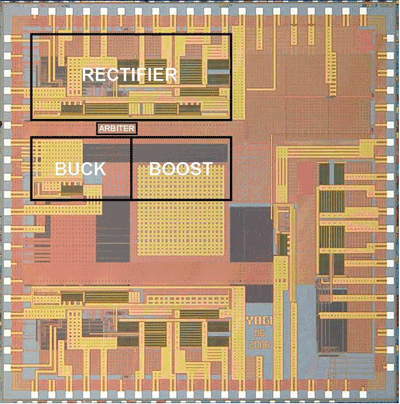Researchers find practical way to harvest power in small amounts
At the International Solid State Circuits Conference (ISSCC) in San Francisco, CA, last month, Massachusetts Institute of Technology Prof. Anantha Chandrakasan and alumnus Yogesh Ramadass unveiled energy-scavenging systems being developed that could create power from temperature differences of just 1 or 2, producing about 100 μW of usable power.
As a result of research over the last decade, power consumption of sensors, processors, and communications devices has been reduced to the point where it is possible to run systems, such as a wearable thermal-harvesting system, from very low power. However, existing power harvesters are limited by their controlling interface circuitry: commonly used full-bridge rectifiers and voltage doublers severely limit the electrical power extractable. In addition, the power consumed by the control circuits themselves make it impractical for them to be used to harvest small amounts of power.
To overcome these limitations, the team developed a bias-flip rectifier that improves on the power extraction capability, making it more than four times greater than that of existing full-bridge rectifiers. The team demonstrated an efficient control circuit, implemented in a 0.35-μm CMOS process (see photo ), with embedded dc/dc buck and boost converters that can share their filter inductor with the bias-flip rectifier, thereby reducing the volume and component count of the overall solution.

Die photo of the piezoelectric energy-harvesting controller showing the dc/dc buck and boost converters and bias flip rectifier.
The team’s present experimental versions of a thermal-harvesting system require a metal heat sink worn on an arm or leg, exposed to the ambient air. “There’s work to be done on miniaturizing the whole system,” Ramadass says. This might be accomplished by combining and simplifying the electronics and by improving airflow over the heat sink. For further information, call Jen Hirsch at 617-253-1682 or e-mail fhirsch@mit.edu.
Richard Comerford
Advertisement
Learn more about Massachusetts Institute of Tec





